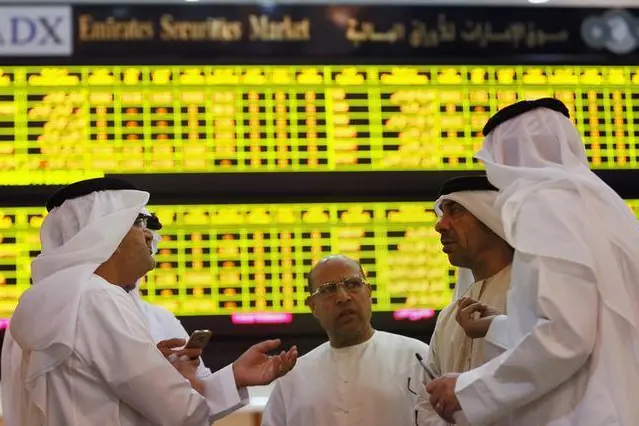PHOTO
Major stock markets in the Gulf fell in early trade on Tuesday, with the Saudi index falling the most on economic concerns and volatile energy prices.
Saudi Arabia's benchmark index declined 1.3%, with Retal Urban Development Co losing 1.6% and Dr Sulaiman Al-Habib Medical Services dropped 4.6%.
Last week, the U.S. Federal Reserve and European Central Bank raised interest rates and promised more, adding to concerns of a global economic downturn.
Most Gulf Cooperation Council countries, including Saudi Arabia, have their currencies pegged to the U.S. dollar and follow the Fed's policy moves closely, directly exposing the region to monetary tightening in the world's largest economy.
On the other hand, SABIC Agri-Nutrients Co jumped more than 5% after the firm proposed a cash dividend of 8 riyals per share for the second-half of 2022.
In Abu Dhabi, the index fell 0.3%, hit by a 0.5% fall in the country's biggest lender First Abu Dhabi Bank .
Dubai's main share index eased 0.1%, weighed down by a 1.8% fall in sharia-compliant lender Dubai Islamic Bank .
Oil prices - a key catalyst for the Gulf's financial markets - inched higher, supported by a softer dollar and a U.S. plan to restock petroleum reserves, but gains were capped by uncertainty over the impact of rising COVID-19 cases in top oil importer China.
Cities across the country have been racing to install hospital beds and build fever-screening clinics amid growing international concern that Beijing's decision to dismantle its stringent "zero-COVID" regime will lead to possible deaths, virus mutations and economic impact.
The Qatari index, however, added 0.2%, helped by a 1.3% rise in Qatar Islamic Bank. (Reporting by Ateeq Shariff in Bengaluru; Editing by Emelia Sithole-Matarise)





















